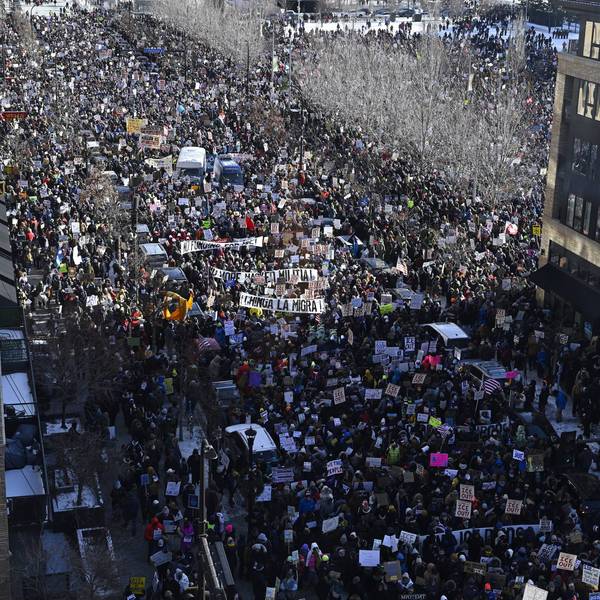The Ludlow Massacre's tiny monument off I-25 in southern Colorado is easily missed if you don't know where to find it. Though the nearby coal mine garnered international attention in 1914 after a government militia slaughtered union organizers there, the minimalism of the memorial is predictable. History books venerate Rockefellers-the union-busting mine owners-and disregard agents of progress like the labor movement.
But remember the parable about those ignoring history repeating it, particularly on April 20-the anniversary of the atrocity. As noted in last week's column, the methods of Ludlow are being celebrated in our foreign policy. But they are also being trumpeted at home.
The Bush administration has abandoned American workers. While not sending militias to execute labor organizers, the feds now look away as corporations kill unions before they are ever born. And today many states are replicating that anti-union model.
A few years ago in Florida, labor leaders had to fight to remove language from a local government's administrative code that said "unions would not help workers, and the county would oppose unions by any lawful means," according to the Fort Myers News-Press. California's state government has accelerated the outsourcing of public services to private contractors in order to avoid employing unionized workers-even though the practice costs taxpayers more money. The governors of Missouri and Indiana have eliminated public employees' right to collectively bargain.
In Colorado, the persecution is most pronounced. You might think that because the reputation-staining Ludlow Massacre happened in that state, Colorado politicians would hesitate to further brutalize the labor movement. But just as racism still exists in the post-Jim Crow South, elected officials in Colorado still rough up workers-and lately that includes Democrats like Gov. Bill Ritter.
In 2007, he vetoed a bill eliminating unfair obstacles to unionization that exist only in Colorado. Though he later signed a modest order recognizing public employee unions (a recognition they have in most states), he also backed the concept of forced labor by endorsing legislation to ban those employees from striking. The Rocky Mountain News recalls that this right to strike was paid for in blood, with the Legislature originally granting it as penance for Ludlow.
Now, Ritter is berating labor-backed measures to help workers during the recession. On conservative talk radio, he attacked a ballot initiative asking employers to provide inflation-linked subsistence pay increases for employees. Ritter apologists say he hopes his position convinces corporate interests to halt their "right to work" initiative that would crush unions by limiting labor's ability to collect dues. The rationale only proves the persistence of the anti-worker Ludlow legacy. This Democrat is countering a bid to totally destroy unions by helping prevent workers from getting the most minimum of raises.
Like so many politicians, Ritter is choosing the anti-union path of Elias Ammons, Colorado's Democratic governor during the Ludlow Massacre.
As recounted in Scott Martelle's book "Blood Passion," Ammons was elected with union support, then became obsessed with finding an imaginary middle ground between business and labor, and ended up "aligning with neither." His Colorado militia initiated the Ludlow Massacre to stop unions from forcing corporations to improve wages and working conditions. Ammons lost in his bid for re-election after one term.
Today, Ritter emulates Ammons by refusing to answer that age-old labor movement question: Which side are you on? Elected on the backs of workers, his priority is appeasing a business community just as rapacious as it was in 1914.
Ludlow's legacy is indeed alive and well. The same story of worker repression and political cowardice that brought on a massacre is again unfolding in Colorado-and all over the country.
David Sirota is a best-selling author whose newest book, "The Uprising," will be released in June. He is a fellow at the Campaign for America's Future and a board member of the Progressive States Network, both nonpartisan organizations. His blog is at www.credoaction.com/sirota.
(c) 2008 Creators Syndicate Inc.



